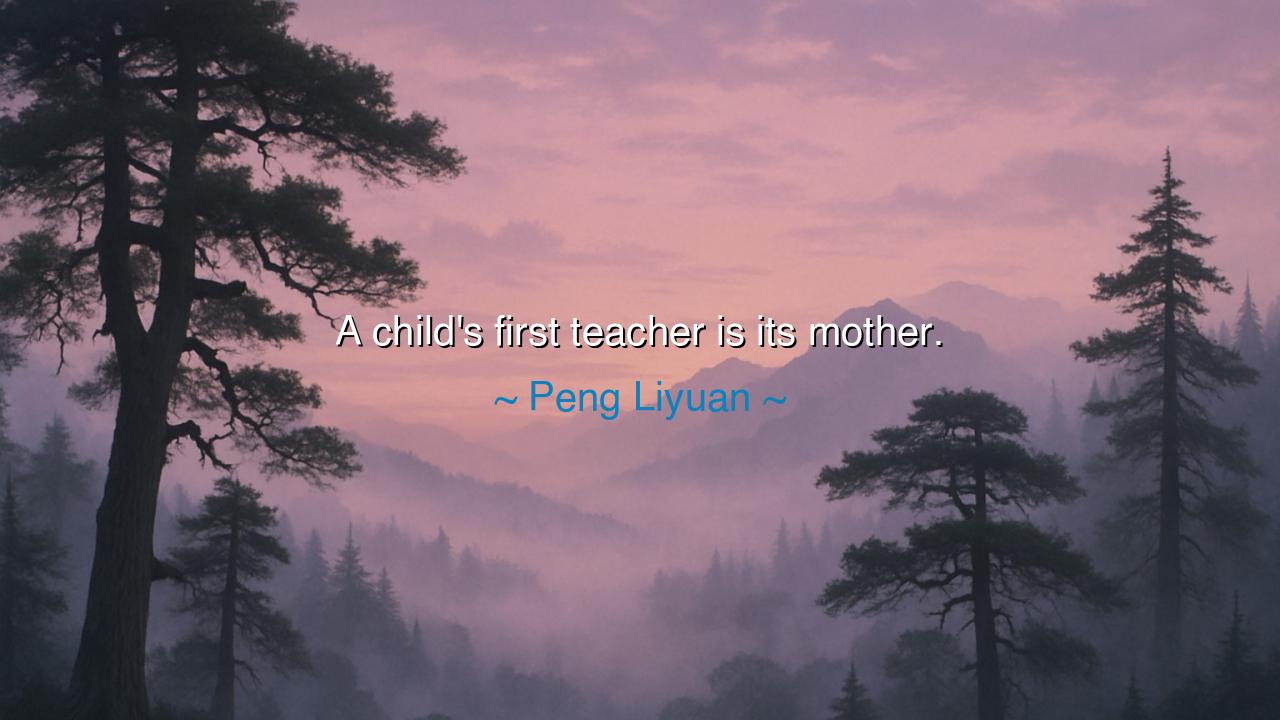
A child's first teacher is its mother.






Peng Liyuan once declared: “A child’s first teacher is its mother.” In these words lies a truth as old as humanity itself, for before schools were built and before books were written, it was the mother who first shaped the soul of the child. From her arms comes warmth, from her voice comes language, from her example comes the earliest sense of right and wrong. She is the fountain from which the first lessons flow—not through lectures, but through the steady rhythm of love, presence, and sacrifice.
The origin of this thought rests in the universal experience of every society. Across cultures and ages, the mother has been the first guide of life, her influence preceding all formal instruction. Peng Liyuan, herself a mother, an artist, and the First Lady of China, gave voice to what generations already knew: that the foundation of education is not written on chalkboards, but upon the heart of the child in the earliest years, when the gaze of the mother is the sun and her word is law.
The ancients honored this truth. In Greece, it was said that the strength of a nation lies in the character of its mothers, for they nurture the warriors, poets, and statesmen long before tutors and mentors arrive. In Rome, Cornelia, the mother of the Gracchi brothers, was praised not for jewels or wealth but for calling her sons her greatest treasures. And in China, the legendary Mencius credited his mother for his wisdom, for she moved their home three times to ensure he would grow in virtuous surroundings. These stories echo Peng’s words: the mother is the primal teacher, and her lessons shape destinies.
History gives us countless examples. Consider Abraham Lincoln, who often spoke of his stepmother, Sarah Bush Johnson, saying that all he was and all he hoped to be, he owed to her. Though she had little education herself, her tenderness and moral strength cultivated in him the character that would one day guide a nation through its greatest trial. Or recall the story of Saint Augustine, whose restless youth was finally directed toward faith through the prayers and patient love of his mother, Monica. These are testimonies to the eternal power of the mother as teacher.
The meaning of Peng Liyuan’s words is not only descriptive but also prescriptive. They call upon society to honor and support mothers, for the future of civilization rests in their daily labors. To neglect them, to leave them unsupported, is to weaken the very roots of education itself. For the first words of wisdom, the first sense of discipline, the first lessons of kindness or cruelty—these are taught long before any classroom, and they endure longer than any textbook.
The lesson for us is clear: we must treasure the role of the mother as teacher, and we must live in gratitude to those who gave us our first lessons. Practically, this means strengthening families, giving mothers the time, respect, and resources they need to shape the young. For those of us who are parents, it means being mindful that every gesture, every word, every choice is a lesson absorbed by the child. And for all, it means remembering with honor the quiet teachers of our beginnings.
Thus Peng Liyuan’s words endure as a call to reverence: “A child’s first teacher is its mother.” Let us never forget this truth, for in the arms of a mother are planted the seeds of nations, the roots of character, and the foundations of every great life. To honor her is to honor wisdom itself, and to neglect her is to forget the very soil from which all greatness grows.






AAdministratorAdministrator
Welcome, honored guests. Please leave a comment, we will respond soon